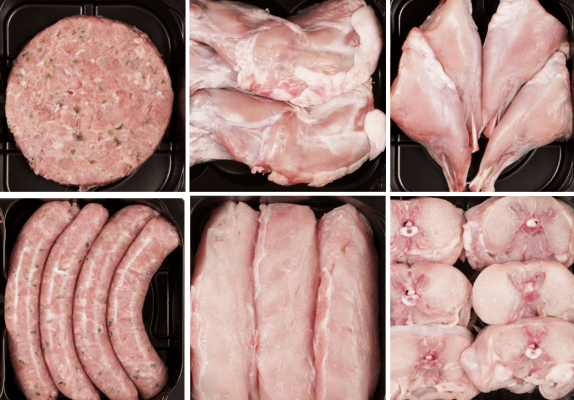
Exploring the Multidimensional Potential of Rabbit Farming: From Meat Production to Value-Added Products
Exploring the Multidimensional Potential of Rabbit Farming: From Meat Production to Value-Added Products
Abstract
Cuniculture presents an array of advantages, including the generation of diverse value-added products, ease of management, and adaptability to various production systems. This article delves into the multifarious benefits of rabbit farming, emphasizing the opportunities arising from fur, pelts, and wool production. Furthermore, the utilization of rabbit by-products in niche markets contributes to the resilience and profitability of rabbit farming operations.
Introduction
Rabbit farming, known as cuniculture, has gained momentum as a sustainable and profitable agricultural practice. The versatility of rabbit farming extends beyond meat production, encompassing an array of value-added products such as fur, pelts, and wool. Additionally, rabbit by-products can be utilized in the manufacturing of pet food, organic fertilizers, and other niche markets. This article examines the potential of rabbit farming, focusing on the diversification of income streams, ease of management, and adaptability to various production systems.
I. Diverse Product Range: An Overview of Value-Added Products
A. Fur, Pelts, and Wool Production
- Angora rabbit fiber: Angora rabbits yield a luxurious fiber that is highly coveted in the textile industry. The high-quality wool, known for its softness, warmth, and lightweight properties, is used in the production of garments and accessories.
- Rex rabbit fur: Rex rabbits produce plush fur, renowned for its velvety texture and dense quality. This fur is extensively utilized in the fashion industry for manufacturing coats, hats, and various accessories.
B. Utilization of Rabbit By-Products
- Bones, offal, and blood: These by-products can be effectively used in the production of pet food, providing an additional income stream for rabbit farmers.
- Organic fertilizers: Rabbit manure, rich in nitrogen, phosphorus, and potassium, can be employed in the creation of organic fertilizers. The application of these fertilizers contributes to sustainable farming practices and offers an alternative market for rabbit farmers.
- Niche markets: The diverse by-products of rabbit farming can be exploited in specialized markets, such as pharmaceuticals, cosmetics, and research. For instance, rabbit serum and antibodies are valuable resources in scientific research.
II. Ease of Management: Attractiveness for Small-Scale Farmers and Entrepreneurs
A. Low Capital Investment and Minimal Infrastructure Requirements
Rabbit farming can be initiated with a comparatively low capital investment, making it an appealing option for small-scale farmers and entrepreneurs. The minimal infrastructure requirements for rabbit housing, feeding, and breeding further contribute to the cost-effectiveness of this agricultural practice.
B. Ease of Management and Low Labour Input
Rabbit farming necessitates relatively low labour input, as rabbits are easy to manage and require limited attention. This aspect is particularly advantageous for farmers seeking to diversify their agricultural activities without significantly increasing their workload.
C. Adaptability to Various Production Systems
Rabbit farming can be adapted to a range of production systems, including intensive, semi-intensive, and extensive systems. This adaptability allows farmers to select a system that best suits their resources, preferences, and market demands.
III. Scalability of Rabbit Farming Enterprises
The ease of management, coupled with the adaptability of rabbit farming to various production systems, enables farmers to scale their enterprises according to market demands and resource availability. This scalability ensures that rabbit farming can remain a viable and profitable agricultural practice for both small-scale farmers and larger commercial operations.
Conclusion
In conclusion, the diverse product range offered by rabbit farming, along with its ease of management and adaptability to various production systems, contributes to the resilience and overall profitability of rabbit farming operations. By capitalizing on the potential of value-added products such as fur, pelts, and wool, as well as utilizing rabbit by-products in niche markets, farmers can diversify their income streams and enhance the sustainability of their businesses. To further advance in this industry, it is essential to invest in professional development.
Register with NIRUDI and enroll in the course "Discover the Secrets of Successful Organic Rabbit Farming: A Complete Guide" to gain valuable insights, skills, and knowledge required for success in the rabbit farming sector.
